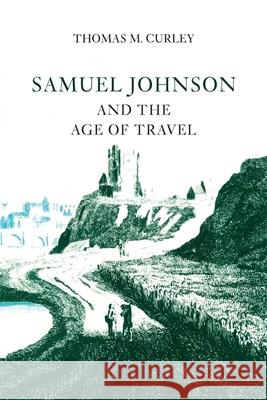Samuel Johnson and the Age of Travel » książka
Samuel Johnson and the Age of Travel
ISBN-13: 9780820333786 / Angielski / Miękka / 2009 / 300 str.
Although Samuel Johnson's famed ramblings never took him more than five hundred miles from his London home, he was an indefatigable planner of distant voyages. Sharing with his fellow Englishmen that passion for investigating the unknown which had ushered in a momentous geographical revolution, Johnson became the original armchair traveler. His writings proclaim a boundless curiosity about the globe and demonstrate a pervasive preoccupation with travel in every conceivable form. Travel represented more for him than geographical movement; it was a symbol of intellectual growth in his life, his morality, and his society. While Johnson's biographers have all emphasized his fascination with exploration and discovery, no comprehensive study of his complex relationship to the epoch-making geographical advances of his century has heretofore appeared.
Thomas Curley's "Samuel Johnson and the Age of Travel" offers new perspectives on this crucial and surprisingly little-known concern of the man and his age, when English literature brilliantly mirrored the widening frontiers of the British Empire. Drawing extensively on Johnson's entire canon, the works of his contemporaries, and a vast store of much neglected travel books, Curley places Johnson's love of travel and travel literature firmly in its literary and historical contexts.
Johnson's career began with the translation of a travel book, yielded numerous articles and essays on the subject in his middle years, and culminated in the publication of his own splendid description of the Highlands in "A Journey to the Western Islands of Scotland." Keenly interested in geography, Johnson studied well over two centuries of travel literature to validate his own philosophy of human nature and to promote improved literary standards in what was then the second most popular genre in England. His masterpiece, "Rasselas," not only enshrined his recurring vision of man as perpetual explorer but also exemplified that fruitful interaction between travel books and belles-lettres so prevalent throughout Johnson's age.
"Samuel Johnson and the Age of Travel" sheds new light on Johnson's career ambitions, his talents in moral observation and literary creation, and his inquisitive age. Johnson emerges in Curley's study as a truly representative writer completely captivated by the romance of Georgian travel and illustrative of the cultural impact of an expanding world picture upon the minds and letter of eighteenth-century Englishmen.











